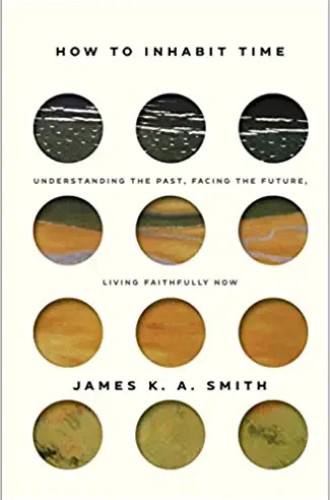“When are we?” asks James K. A. Smith
The philosopher diagnoses the temporal tone deafness of Christians, our inability to attend to time.
James K. A. Smith believes that temporal life is not a curse but a gift. How to Inhabit Time calls Christians to embrace our experience as socially conditioned and temporarily situated beings through memento tempori—a discipline of “spiritual timekeeping.” Acting as a seasoned guide, Smith offers a six-chapter journey that seeks to stir up our attunement to the world around us through practices of contemplation, observation, and questioning. The end of this embrace is not an apocalyptic-driven fear but a “new recognition of ourselves, our world, and our relation to the God who encounters us in the fullness of time.”
In typical Smith fashion, this book is richly interdisciplinary. In one section, Smith explores the medical condition of dyschronometria, the inability to measure the passing of time; in another, the lyrics from a Fleet Foxes tune drive his point home. He intersperses his own reflections on Ecclesiastes with material from a plethora of writers, from Kierkegaard to Shakespeare to Wendell Berry. He also ventures deep into his own life experience—including a painful struggle with fatherlessness, depression, and doubt—to show the personal stakes of his intervention in our understanding of time. All of this is confined within 200 lively pages.
The book’s guiding question—“When are we?”—is a prescription for what Smith diagnoses as a temporal tone deafness, our inability to attend to time. The church today, he observes, is conditioned by a perspective of “nowhen,” wherein we regard a particular practice of Christian faith and biblical interpretation as a timeless truth to be practiced and applied across all time and space. Because the church does not recognize how it is a product of history, Christians cannot properly understand the present. To ask “When are we?” is to wipe the mud from our eyes and see the way we are located within God’s particular presence in our world today.





